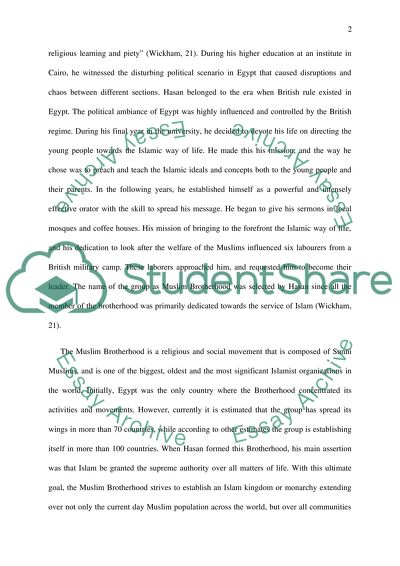Cite this document
(“The Muslim brotherhood Essay Example | Topics and Well Written Essays - 1750 words”, n.d.)
Retrieved from https://studentshare.org/history/1495620-the-muslim-brotherhood
Retrieved from https://studentshare.org/history/1495620-the-muslim-brotherhood
(The Muslim Brotherhood Essay Example | Topics and Well Written Essays - 1750 Words)
https://studentshare.org/history/1495620-the-muslim-brotherhood.
https://studentshare.org/history/1495620-the-muslim-brotherhood.
“The Muslim Brotherhood Essay Example | Topics and Well Written Essays - 1750 Words”, n.d. https://studentshare.org/history/1495620-the-muslim-brotherhood.


